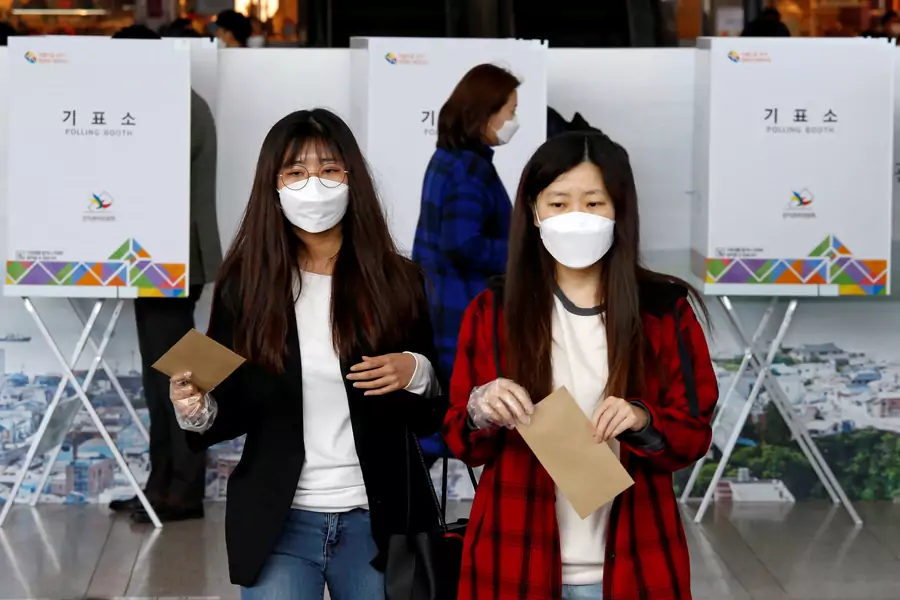Women This Week: South Korea Elects Record Number of Women

South Korean Election Sees Rise in Women's Representation
South Korea's parliamentary elections—held amidst the COVID-19 outbreak—saw a record number of women win seats. Fifty-seven women were elected, increasing total representation in parliament incrementally from 17 percent to 19 percent. A new party competing this cycle is South Korea's Women's Party, aself-described feminist party launched on March 8. It draws its platform from the demands of the Korean #MeToo movement, including equal pay and stronger legal protections from voyeurism and violence. The Women's Party received 208,000 votes, though did not meet the 3 percent threshold for a seat in parliament. The party has set up a campaign school to train women candidates for the 2022 local and provincial elections.
COVID-19 Compounds Vulnerabilities of Migrant Women
The COVID-19 pandemic has amplified migrant workers’ risk of unemployment, abuse and exploitation, and deportation; vulnerabilities that are felt acutely by migrant women. Women make up the majority of migrant domestic workers in most countries. In Lebanon, these workers are trapped in the country by lockdowns, threats of violence, and exploitation; and across Europe, migrant caregivers have been left stranded as Romania and Austria close their borders and restrict internal movement. Others forced to return home face a different set of challenges, such as indigenous women who fled Venezuela and now face human rights abuses upon return.
UNFPA Predicts Family Planning Disruptions
More on:
A new report from the United Nations Population Fund (UNFPA) estimates that 47 million women will not have access to contraceptives if COVID-19 lockdowns continue for six months, resulting in 7 million unplanned pregnancies. Providers confirm challenges—5,633 Planned Parenthood partner clinics have closed globally, and Marie Stopes International announced they will serve 9.5 million fewer patients this year. The UNFPA report also predicts that COVID-19 will divert or delay programs aimed at curbing female genital mutilation (FGM) and child marriage. Deferring implementation by one year could lead to an estimated 2 million additional instances of FGM that would otherwise have been averted, and 7.5 million child marriages.
More on:
 Online Store
Online Store